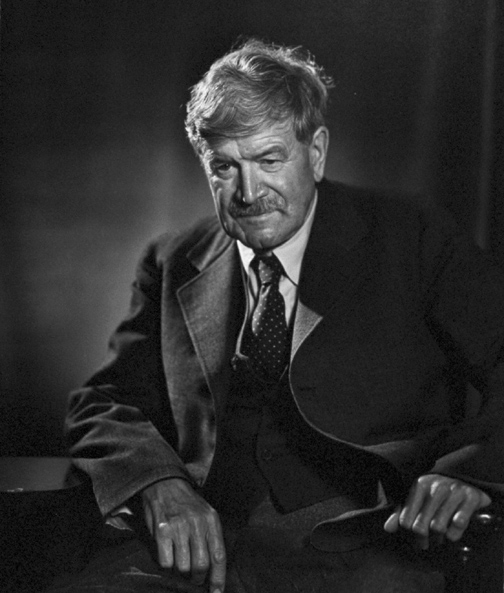Stephen Leacock, photographed by Yousef Karsh, 1940
On this date in 1944 Stephen Leacock died of cancer at age 74.
Frye regularly refers to Leacock’s Lord Ronald from Nonsense Novels, the hero who is always riding off in all directions. He nicely utilizes the figure here to characterize Canada’s unusual cultural development during its colonial period:
Canada had no enlightenment, and very little eighteenth century. The British and the French spent the eighteenth century in Canada battering down each other’s forts, and Canada went directly from the Baroque expansion of the seventeenth century to the Romantic expansion of the nineteenth. The result was the cultural situation that I tried to characterize in my earlier conclusion [to Literary History of Canada]. Identity in Canada has always something about it of a centrifugal movement into far distance, of clothes on a growing giant coming apart at the seams, of an elastic about to snap. Stephen Leacock’s famous hero who rode off rapidly in all directions was unmistakably Canadian. This expanding movement has to be counterbalanced by a sense of having constantly to stay together by making tremendous voluntary efforts at intercommunication, whether of building the CPR or hold federal-provincial conferences. (“Conclusion to the Second Edition of Literary History of Canada“, CW 12, 454.)
Leacock’s “The Marine Excursion of the Knights of Pythias” from Sunshine Sketches of a Little Town can be read here.
